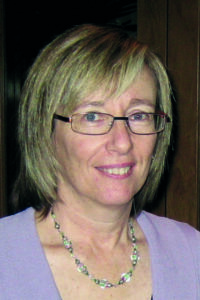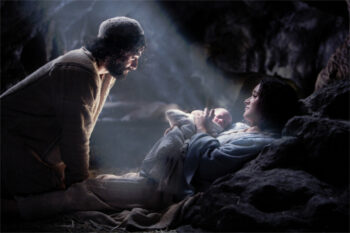Immanuel and a baby called Isaiah

by Maria Kennedy
 The parents decided to call their newborn son Isaiah much to the surprise of the wider family. Isaiah was the Old Testament prophet who predicted Jesus’ future birth. Isaiah 7:14”…the young woman is with child and will give birth to a son whom she will call Immanual.” Apart from this old, biblical name, everything else about baby Isaiah was new - a new life, a new beginning, and a new member of the family.
The parents decided to call their newborn son Isaiah much to the surprise of the wider family. Isaiah was the Old Testament prophet who predicted Jesus’ future birth. Isaiah 7:14”…the young woman is with child and will give birth to a son whom she will call Immanual.” Apart from this old, biblical name, everything else about baby Isaiah was new - a new life, a new beginning, and a new member of the family.
Their whanau surrounded them with gifts, especially the to-be grandparents, as if the much-anticipated child had encouraged them. There was the new cot, with the new mobile above it still in plastic wrapping, the new blankets and sheets, the new onesies, and even a new changing table. After Isaiah’s birth the gifts kept coming. Knitted booties, hats and jackets, toys and books, and people arriving with casseroles wrapped in tea towels. It was as if everything about the baby renewed a generous spirit in everyone.
 The parents sold the 2-door coupe for a 4-door sedan. It was second-hand but everything else about the car was new - the special car seat for Isaiah and the new lifestyle it pointed to. Isaiah brought a jolt of change to his parents and some of it was exhausting. Their once-tidy house was in disorder - the dishes were stacked on the bench unwashed; the clean washing was strewn on the couch unfolded, and the ‘Welcome Baby’ cards aligned on the sideboard were yet to be answered. Despite the stresses and strains, the change was good. The parents felt their lives were more fulfilled. They felt more grown up. In truth, to have Isaiah in their lives gave them a deep-seated joy. Isaiah would grasp his whole hand around one of their fingers. He wailed for food and then burped contentedly afterwards. And he was so snugly to hold pressed against their chests with his head held gently and secure. They so loved their son, they would do anything for him, so that their lives became empty of their needs and full of love towards him. The wider whanau also embraced Isaiah. They felt privileged to be witnesses to this ever-rolling cycle of one generation following another.
The parents sold the 2-door coupe for a 4-door sedan. It was second-hand but everything else about the car was new - the special car seat for Isaiah and the new lifestyle it pointed to. Isaiah brought a jolt of change to his parents and some of it was exhausting. Their once-tidy house was in disorder - the dishes were stacked on the bench unwashed; the clean washing was strewn on the couch unfolded, and the ‘Welcome Baby’ cards aligned on the sideboard were yet to be answered. Despite the stresses and strains, the change was good. The parents felt their lives were more fulfilled. They felt more grown up. In truth, to have Isaiah in their lives gave them a deep-seated joy. Isaiah would grasp his whole hand around one of their fingers. He wailed for food and then burped contentedly afterwards. And he was so snugly to hold pressed against their chests with his head held gently and secure. They so loved their son, they would do anything for him, so that their lives became empty of their needs and full of love towards him. The wider whanau also embraced Isaiah. They felt privileged to be witnesses to this ever-rolling cycle of one generation following another.
We all have a beginning here on Earth. You may recognise something from Isaiah’s beginning in your experiences - from the birth of brothers and sisters, cousins, nephews and nieces, sons and daughters. Jesus’s beginning was no different. Even though Mary and Joseph were away from their family, you know from your whanau’s experiences that they carried things from their families to help welcome Jesus into the world. Maybe Mary’s mother, Ann, made the swaddling clothes Jesus was wrapped in. Or she prepared some special herbs to help Mary recover from the birth. And both families of Mary and Joseph, may have given them money, as much as they could spare. There is a universality of how families tick and the bonds that bind them together. As imperfect as some of our family experiences can be, we still know that sense of belonging.
As we look forward to Christmas and the celebrations around it, family gatherings, gift giving and food splurges, we also remember with joy Jesus’ birth at Bethlehem. It is the joy of new life, new beginnings coupled with the fulfilment of the Old Testament prophecies and the wonder of the Son of God being born to live among us. During Jesus’ time on Earth he said, “Anyone who does the will of my Father in heaven is my brother and sister.” Matthew 12:50. As incredible as it sounds, according to Matthew’s quote, there in the manger lies Jesus, Son of God, our baby brother. Jesus by his nature is God, and we by the grace of God and through baptism become his adopted brothers and sisters.
Our actions also define our fraternity. When we reach out to others at Christmas, to the lonely, the needy, the less fortunate, we are living as Jesus’ brothers and sisters. When we visit the Christmas crib and delight in seeing the baby Jesus lying in the Christmas straw, we are visiting our brother. The efforts we make to include the outliers of our friends, families and communities at Christmas, are made with Jesus our brother beside us. We belong to God’s whanau and we have many brothers and sisters. Together we make up the faithful through a shared faith and a shared striving to do God’s will in this world. Christmas brings the faithful many spiritual gifts - the joy of being saved, the hope of going to Heaven, the peace that comes from trusting and believing in Jesus and our delight in the birth of the baby Jesus who is the beginning of a new age.
The prophet Isaiah lived in the hope of Jesus’ coming but we live in the aftermath. We have access to the truth of Jesus, the gifts of the Holy Spirit, the example of the saints and the generations upon generations of Christian believers who strove to live out their faith that they handed down to us. So much amazing progress among mankind has been made since Jesus’ birth, yet we find ourselves beset with problems: the war in Ukraine, global warming, Covid, hunger, poverty, sickness, religious persecution, democracy under threat, families under stress - the list goes on. Where is the joy and our generous response? The prophet Isaiah may be able to help us. He didn’t call the Christmas baby, Jesus, rather he called him Immanuel. This translates to God is with us. In these unsettled times we can look with delight at the baby Jesus and take heart. God is with us still.
 Entries(RSS)
Entries(RSS)